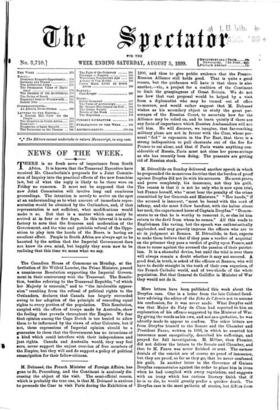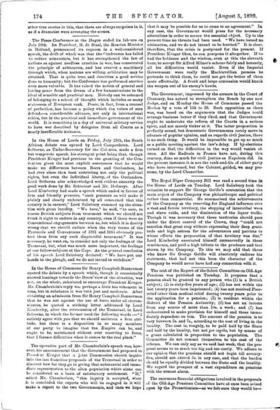More letters have been published this week about the Dreyfus
case. One is a letter from the late Colonel Sand- herr advising the editor of the Echo de l'Armee not to assume his confession, for it was never made. What Dreyfus said was that Major du Paty de Clam had reported to him an explanation of his offence suggested by the Minister of War. By giving the words as his own, and not as a quotation, he was adroitly made to appear to confess. The other letters are from Dreyfus himself to the Senate and the Chamber and President Faure, written in 1898, in which he asserted his innocence most energetically, described hie sufferings, and prayed for full investigation. M. Moline, then Premier, did not deliver the letters to the Senate and Chamber, and that to M. Faure was never finished or sent. The earnest denials of the convict are of course no proof of innocence, but they are proof, so far as they go, that he never confessed his guilt. In another letter to the Governor of Otniana Dreyfus remonstrates against the order to place him in irons when he had complied with every regulation, and suggests with an irony which has curious literary finish that if he is to die, he would greatly prefer a quicker death. The Dreyfus case is the most pathetic of stories, but differs from other true stories in this, that there are always surprises in it, as if a dramatist were arranging the scenes.



































